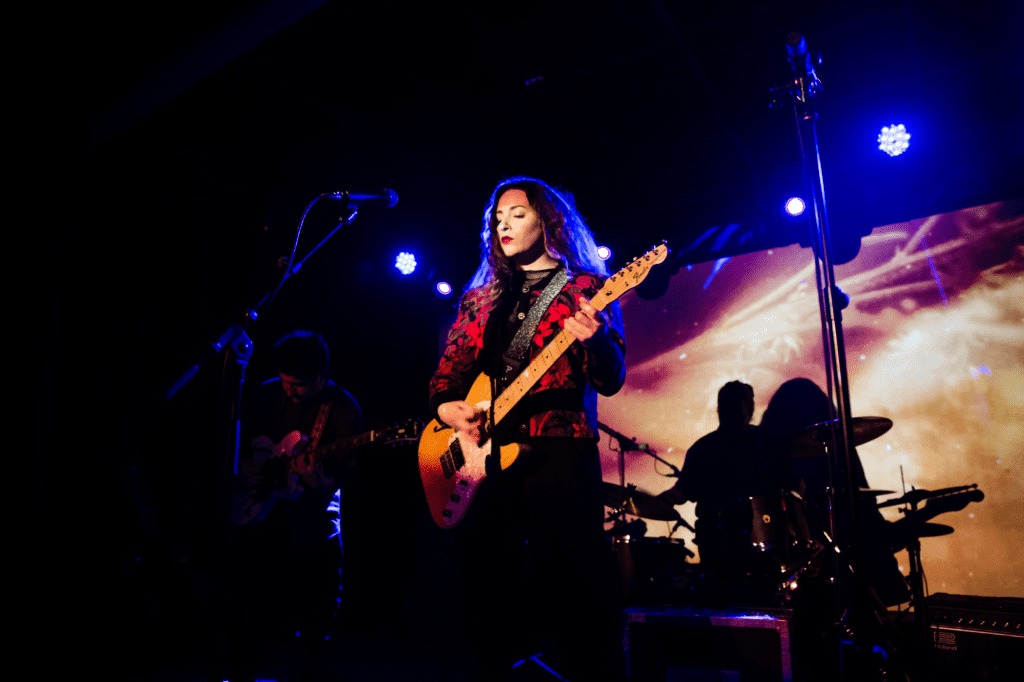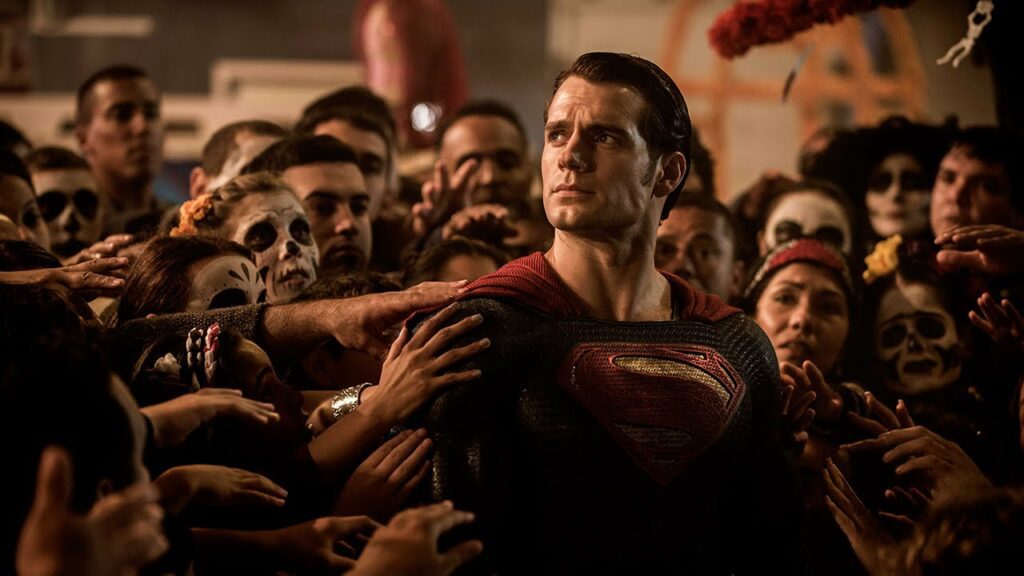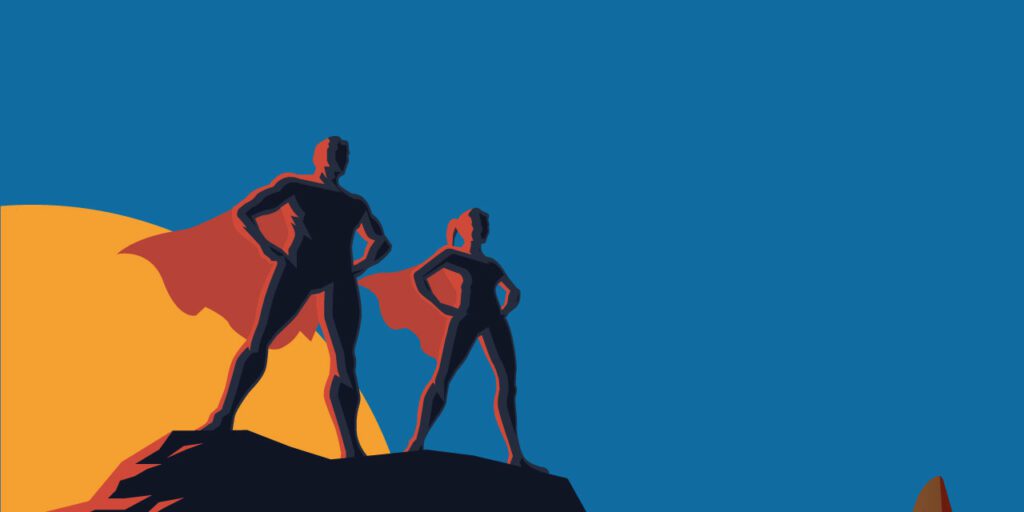
Hero worship is “a feeling of extreme admiration for someone, imagining that they have qualities or abilities that are better than anyone else’s.” We tend to elevate people to this level because they are brilliant, beautiful, glamorous, or have a quality or talent that we value deeply. Hero worship can negatively impact all aspects of our lives if we practice it to the extreme. Learn the signs to look out for and adopt a healthier way of being where you can nurture your inner hero. (Estimated reading time: 12 minutes)
“I wish people would love everybody else the way they love me. It would be a better world.”
— Muhammed Ali
“I want it that way.”
That song title was emblazoned on several attendees’ T-shirts at the Backstreet Boys’ Las Vegas concert at Planet Hollywood Resort and Casino.
Some ladies brought their unenthused boyfriends and husbands along. A few were dressed in bachelorette regalia of tiaras and sashes; other women eagerly sipped their cocktails as they meandered through metal detectors.
I have been a Backstreet Boys fan since I was a teenager, so when I heard about the boys’ Las Vegas residency, I knew I had to go. Despite being the best-selling boy band of all time, they remained humble, witty, all-around nice guys.
Surrounded by fellow thirty-somethings in the long line to enter, we bonded over the times when we would get excited every time a BSB song played on MTV in the 90s (this was before the days of YouTube) and collected posters and memorabilia of our favorite band members.
A few minutes after 9pm, the lights dimmed, and stage lights sparkled like stars as Howie Dorough, Nick Carter, Brian Littrell, Kevin Richardson, and AJ McLean, clad in pure white, descended from five massive glowing boxes inside the theater and opened the show with ‘Larger than Life.’
The sound of the 4,600 screaming fans was jolting, yet it enhanced the palpable mania of collective energy. The rush was real, and I found myself caught up in a frenzy, regressing to my teenage self. Song after song, they nailed every dance move and sang each hit with energy, charisma, and smooth vocals.
The trip down memory lane filled me with nostalgia and immense gratitude for those carefree times of my youth. Dancing with my friends and singing along with the crowd was pure joy and a welcome escape from the serious business of being an adult.
But I was also intrigued by what I witnessed that night. The inner critic in me wondered if fans like us go overboard in the presence of our favorite stars. Did onlookers perceive us BSB devotees as crazy or juvenile? Were we behaving irrationally?
We weren’t anomalies. The tendency to admire people with qualities we find desirable is hardwired into us because there’s a lot we can gain from our idols. Whether it’s in the field of business, sport, or humanitarianism, the sentiment is the same.
But there’s a difference between looking up to aspirational figures who inspire us to be our best and worshiping individuals with a hyperfocus on every detail of their lives.
We need to be wary of this type of hero worship as it can take us down the road of obsession, where we risk losing ourselves. To hero-worshippers, the objects of their affection embody god-like perfection and are infallible.
I reflected on my Backstreet Boys concert experience and eventually gave myself carte blanche to unleash my inner fangirl. I concluded that my appreciation for the band came from a place of self-esteem and sufficiency – an essential quality in a healthy fan. It was okay to continue “wanting it that way.”
What is hero worship?

The formal definition of hero worship is “a feeling of extreme admiration for someone, imagining that they have qualities or abilities that are better than anyone else’s.” We elevate people to this level because they are extremely intelligent, beautiful, glamorous, or have a quality or talent that we value deeply. We experience hero worship for an individual, like a celebrity, or a group, like a sports team.
Some people are more prone to hero worship than others. They feel the relentless need to elevate a person to a godlike status. They search until they find a suitable candidate who fits their idealistic notions and don’t hesitate to put them high on a pedestal where they can stand back and admire them. The devotion of a hero-worshiper is often comparable to the reverence shown by religious followers towards their chosen deity.
What are the origins of hero worship?
The origins of hero worship most likely come from ancient Greece. Greek gods like Zeus, Ares, and Aphrodite were not the only beings people worshiped. The popularity of heroes like Hercules, Prometheus, Achilles, and Odysseus led to the formation of hero cults.
These ancient Greek heroes represented the pinnacle of success, and their deeds echo through the centuries. They were powerful, superhuman, and were considered influential and important in Greek life. They had significance in social, political, and religious areas and were archetypal figures who taught people lessons, virtues, and demonstrated how to face tragedy and downfalls.
Hero cults had location-specific practices. Each of the thousands of hero cults around ancient Greece had their own set of local heroes they looked up to. Some of them were well-known in Greek mythology, like Achilles, while others were local heroes who contributed to the surrounding area in a big way or had other admirable traits that were valued.
Heroes graced a lot of Greek art – you’ll find their images painted on pots and carved on temples. There were also many activities around the tombs of fallen heroes, as the Greeks believed that their power was concentrated around their remains. They were enshrined and given offerings in the form of libations; a drink poured out as an offering to a deity.
The psychology behind hero worship
Those who have studied the cult of celebrity and hero worship say that the need to find idols is wired into our DNA. We are programmed to “follow the leader” because, as social animals, we look for cues from the alphas who are essential in our pack. Tribe mentality causes us to look to other members who seem to be getting it right.
However, some people can handle this tendency better than others. When hero worship is taken to extreme levels, it can be classified as a mental health problem. Research in the British Journal of Psychology established a scale that shows at what point a fan’s feelings for their target resemble an addiction.
At the point of addiction, a fan can become hooked on the lives of their idols and need constant information and updates to get their fix and to feel connected. The fallout of this unflinching devotion is often severe – feverish fans suffer from anxiety, depression, and social dysfunction.
At the core of hero worship is the subconscious desire to transcend our own limitations. Every person needs to go beyond their perceived “ordinariness” and attain higher levels of recognition. They project the creative energies stirring deep down inside them onto their heroes. If they feel incapable of achieving their dreams, they latch onto the power of those who are.
Unfortunately, hero worship is fueled by the entertainment spin machine, which is partly to blame for creating the modern cult of celebrity. They generate a narrative through marketing campaigns and perfectly curated pictures to craft an image of perfection that feeds into the fantasy of others.
The media uses the power of the ‘halo effect,’ a type of cognitive bias in which our overall impression (“they are confident”) of a person influences our evaluation of their personality (“they are trustworthy”). They bombard us with news coverage and glossy images that position celebrities as successful, intelligent, likable, and attractive. Because of this, we default to having a favorable impression of them — we assume they are kind, intelligent, and friendly.
Those who are vulnerable and not focused on their own lives fall hard for the headlines, social media spectacles, and products that can bring them closer to their heroes – clothes, books, cosmetics, and accessories. After all, the entertainment industry is a business, and the media moguls know that there are fortunes to be made by feeding off unsuspecting consumers.
The harms of hero worship

With the advent of social media, the tendencies for hero worship have increased to stratospheric levels. Few people exist without a hero they worship. They look at the TikTok account of their favorite singer or the Twitter feed of their go-to guru without realizing how much time has been frittered away while keeping tabs on them.
Hero worship becomes dangerous when it’s ingrained in the psyche of citizens who follow corrupt politicians and dictators and believe their ideology without question. This naivete is exploited by the demagogues who use the support of their worshipers to further their agendas.
We saw this play out when Hitler amassed his power by winning the trust of his Nazi subjects, convincing them to commit horrific acts. No one dared to question him publicly because of how much he was revered by those who bought into his ideology of hate.
Hero worship can also hurt our mental health. Fawning over our targets distracts us from our own lives. We live vicariously through our heroes and by basking in their glow to get a piece of their prosperity pie.
On a subconscious level, we would find fulfillment and fill the voids in our lives by being part of their fandom. This is similar to how religious people try to maintain a close relationship with the deities from whom they draw strength and solace.
Hero worship can also impact different areas of our daily lives. Relationships can decline because we unfairly compare our partners to our heroes, or we avoid social events in favor of events related to our heroes, like concerts, shows, status updates, and live streams.
It can also negatively impact our professional lives. Spending too much time online following our heroes will reduce focus and the quality of our work. If hero worship creates addictive behavior, it can lead to obsession, exhausting your financial resources, and a general loss of control.
Hero worship can also harm the heroes. If fans get too crazy, they might harass, stalk, or make aggressive and inappropriate attempts to get their attention. It also puts pressure on the target to be perfect at all times.
Heroes need to live up to their subjects’ fantasies, which is almost always an impossible standard. They become prisoners of others’ expectations.
The hero might even buy into what is said about them and lose their sense of self. An otherwise self-aware and grounded person might convince themselves of their hero status and behave in mean, entitled, and unkind ways because they know they can get away with it.
Six signs of extreme hero worship
These are six classic signs that you are dealing with a severe form of hero worship:
- You’re always looking for news about them and what they are up to. If you feel disconnected from their world, you experience anxiety, restlessness, and boredom.
- You stalk them online, and if they are in your vicinity, you might frequent the areas where they usually go.
- You tend to neglect your needs and responsibilities and prefer to focus on your idol.
- Your whole world revolves around your hero, and you spend most of your day thinking about them.
- You’re willing to use all your time and resources to buy their merchandise, get closer to them, or look and live like them.
- If anyone says anything negative about your idol, you lose your temper and will walk away.
How to get over hero worship (and become the hero in your own life)

The key to overcoming hero worship is to wake up and step outside your self-created bubble. You’ll see that there’s more to life than being immersed in the world of your idol.
Nurture and unleash your inner hero with these six steps:
1. Have a clear vision for your life
A hero has a strong purpose in life. Your vision will guide you toward making the right choices, and your purpose will remind you why doing so is essential. Both go hand in hand in giving your life a deeper meaning. Without a mission, you can easily be distracted by the lives of others.
2. Address any pains and problems
Many people give in to hero worship because they are trying to distract themselves from the present. They avoid problems and lingering issues and use their target as escapism. If this is the case for you, ask yourself what you’re escaping from and what actions you need to take to solve it.
Remember to take care of yourself. You can only be a source of hope if it is alive and well in your own heart. Get the help you need to get back on your feet when you’re down. Being accountable and proactive about transforming your life will give you more power than what you seek in others.
3. Manage your life responsibly
Taking responsibility for your choices will make you the hero of your life. When you’re independent, you seldom need to rely on others to meet your needs, and if you do form alliances, it’s based on mutual respect and equality. Develop your critical thinking skills to evaluate your choices strategically instead of getting carried away with your emotions. Logical and objective thinking is a marker of maturity and responsible decision-making.
4. Develop your self-esteem
Your self-esteem is the opinion you have of yourself and your worth. When you have high self-esteem, you’ll realize the importance of caring for your needs and developing your talents. If you find yourself pulled towards your idol, remind yourself that you are more worthy of your attention, love, and care and deserve the best life has to offer.
5. Discover and nurture your gifts and be of service
We have unique gifts that enable us to do things others find hard or impossible. You’ll have one or two areas you’re talented in that you can use when advocating for causes you care about.
For instance, if you’re a good organizer, you could arrange campaigns for climate change. If you create arts and crafts, you could sell your items and donate some of the proceeds to send a girl to school.
Be the person others look up to when they face overwhelming fear and doubt. Your optimism and encouragement will brighten their world and lift the dark clouds surrounding them.
6. Realize no one is perfect
Your hero might be the paragon of beauty and virtue, but they are still human beings. If you delve beneath the surface, you’ll see they have their own fears, insecurities, weaknesses, and have made mistakes like everyone else. When you acknowledge this, you’ll see them in a more realistic light and take them off the pedestal. Instead of making them larger than life, see them as fellow humans from whom you can learn.
What do you admire about your idols, and how can you incorporate those qualities into your life? What steps do you need to take to achieve what they have or reach the level of mastery they’ve reached? Instead of looking for perfection, look for inspiration.
Placing ourselves on a pedestal means loving ourselves enough to put our needs, preferences, and vision center stage. Doing this does not make us selfish. When we feel strong and self-sufficient, we’ll have the resources, time, and capacity to help those who need it. In this way, we become the heroes in their lives.
All my best on your journey,
Seline

Questions for you: Are you or anyone you know prone to hero worship? What impact does it have on your lives? What are some steps you can take to overcome it?
Did you like this post? Sign up below, and I’ll send you more awesome posts like this every week.

All of my heroes are dead, but I only just recently started to wonder what hero worshipping said about me. I certainly think that low self-esteem plays a big part. This was a very interesting article; short and to the point. Thank you. I will take the advice to heart.